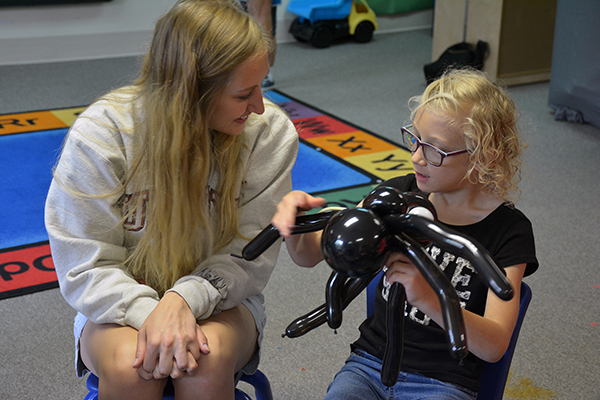Social Skill Development through Play with Parents
contributed by Emmaleigh Badeaux, MA, LMHCa, and Tracy Gale, PsyD, HSPP, Easterseals Crossroads

Parents can serve as ideal playmates to improve children’s social skills through play. Here are some things to keep in mind to increase your child’s social learning:
- Provide specific praise during appropriate social behaviors, such as sharing, taking turns, and staying calm when things don’t go their way. For example, you may say, “I love how you stayed calm when your tower fell down!” Using specific praise during play, and throughout the day, is an excellent way to teach pro-social skills and build your child’s self-esteem at the same time.
- Play with creative toys, such as blocks, trains, and crayons, to allow for increased engagement, collaborative play, and improved problem solving. This provides opportunities for practicing the skills they will use when playing with their peers. You can model play skills, saying things like, “I’d really like to play with the red train. Could you hand that to me, please?”
- If your child engages in inappropriate behavior that is not dangerous during play, ignore it for the moment. Later, when he or she is calm, you can briefly discuss how their behavior made you feel to help build their understanding that others have thoughts about their behaviors. You may say things like, “When you took that train from me without asking, it made me feel sad and like you didn’t want to play with me.” Then, help your child come up with ideas about what they could do differently next time, such as, “When I want something from a friend, I ask them if I could take a turn.” After this short conversation, be sure to provide specific praise when they appropriately use the skill that you discussed.
- When in doubt, do what they’re doing! Be engaged in the play, even if you only have a few moments. Try to be enthusiastic and get animated! By being fun and silly, you are strengthening your bond with your child and increasing their understanding of social relationships and interaction.




